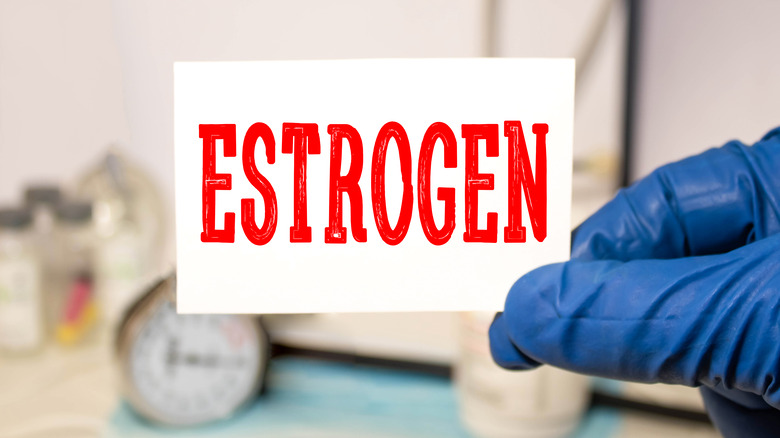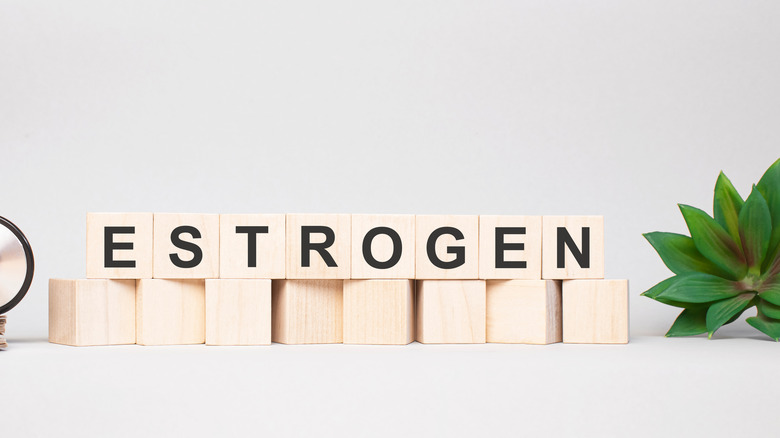Do Men Produce Estrogen?
Many people understand estrogen to be a female hormone that works to keep women's bodies balanced and healthy. There is, however, so much more to estrogen than what is commonly known. For example, according to Cleveland Clinic, estrogen is partly responsible for women's lower risk of heart disease before menopause. It may be surprising to learn that men produce estrogen as well — in lower quantities. According to a study published in the Asian Journal of Andrology, men have estrogen receptors and aromatase (which converts testosterone to estrogen) in their brains, penises, and testicles.
On average, an adult man has 10 to 50 picograms per milliliter (pg/mL) of estradiol (the primary form of estrogen), which is much lower than premenopausal women's average of 30 to 400 pg/mL, but comparable to postmenopausal women's average of 0 to 30 pg/mL (per University of Rochester).
The Journal of Clinical Investigation notes that healthy estrogen levels are essential for men's bone health, body fat distribution, glucose and lipid metabolism, libido, and reproductive health. Having too much or too little estrogen can lead to a variety of health problems.
This is what happens if a man has too little or too much estrogen
A 2013 study published in The New England Journal of Medicine found that if a man doesn't produce enough estrogen, he may experience increased body fat, erectile dysfunction, and low libido. Low estrogen can also interfere with sperm production and function, according to The Journal of Clinical Investigation. Estrogen also preserves bone mass. A 2000 study published in Osteoporosis International found that many patients with primary osteoporosis had estradiol levels below the normal range. Low estrogen can have a variety of causes, including obesity, autoimmune conditions, and rapid weight loss (per Healthline).
Although men's bodies need a certain amount of estrogen, men with too much may experience infertility, fatigue, hot flashes, thyroid problems, and breast development. They may even be more prone to diabetes, blood clots, and strokes. According to Healthline, high estrogen may be due to genes, stress, weight gain, certain medications and substances, liver diseases, and tumors.


